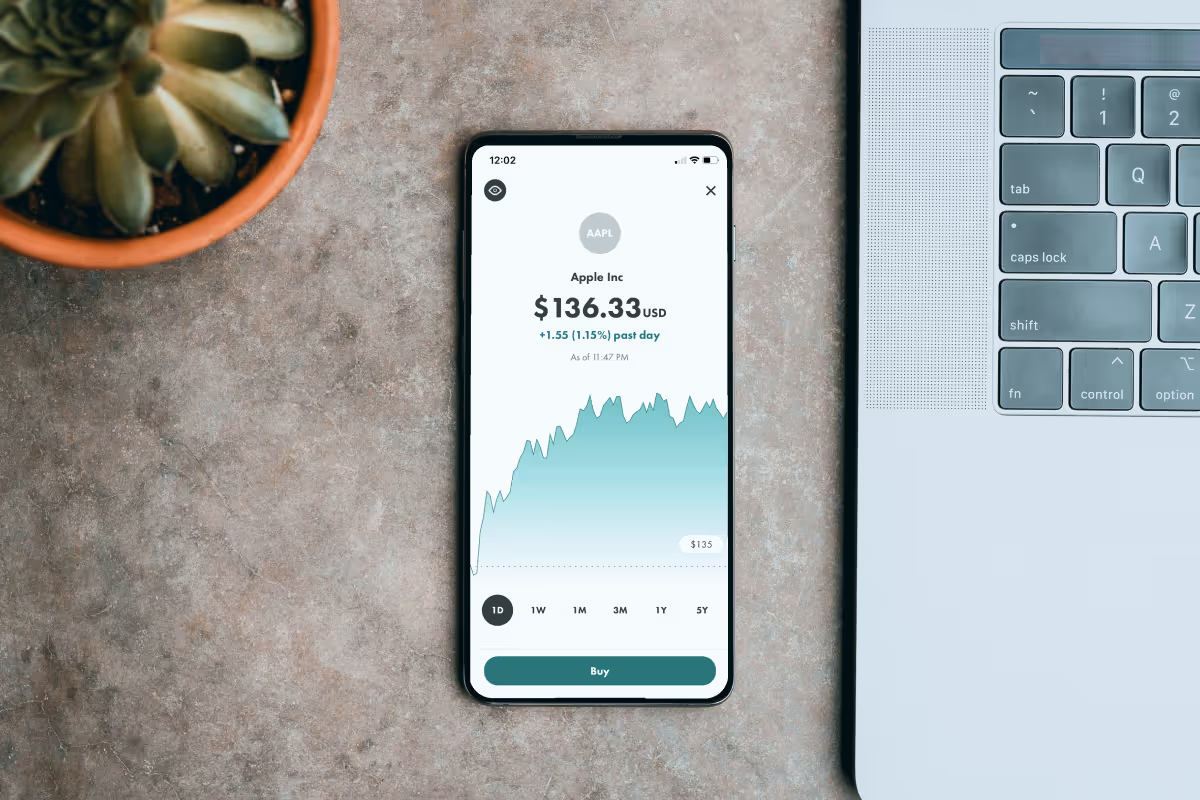Blockchain, VR, or AI – these technology trends are the talks of the town these days. Hardly any industry has yet to experience their influence. Real estate industry is not an exception, so real estate startups can’t but have to follow these technology trends.
But where do you start? And how to make real estate technologies play to the benefit of your business rather than become a waste of resources?
Well, I will touch upon this one in this article. As a Project Manager, I have experience creating technologically-driven real estate solutions, like Nomad.
In this article, I will talk about the tech trends in real estate that are shaping the industry right now and how businesses can use them to take their products up the notch.
So let us start!
Trend 1. Who Run The World – Millennials (and Gen-Zs)
The first real estate trend is strangely not that technological. Yet, it shapes many other tech trends in real estate.
It is no secret that most app users today are called Millennials or Gen-Z. As for the M-guys, they are already coming of age, when they have money and ambition to own their own property. Yet, their younger counterparts, Gen-Zs are not backing off, poised for saving up and purchasing their own property as well.
You can argue that this is not a tech trend itself. Well, maybe the "Millenials and Gen-z" element is not. However, these groups' buying habits and tendencies streamline tech development and form requirements that agencies can't help but adapt to.
Trend 2. Marketplaces as One-Stop Point of Finding the Apartment
Will I surprise you that hardly anyone today surfs the internet or reads magazine advertisements in search of a new apartment? Instead, they prefer to use online marketplaces. Digital marketplaces are the most frequent ways in which real estate businesses exist today.
Generally speaking, online marketplaces are digital portals where users can choose from various options of real estate offers. Marketplaces in real estate are every real estate app you can find in the App Store or PlayMarket. And now, they are a preferable way for users to look for apartments.
However, today it is about more than just creating the app. Your app must also keep up with the user's lifestyle and decision-making process. Millennials and Gen Zs are fast and on-the-go decision-makers, so their attention span is no more than 8 seconds. So you need to adapt your real estate platform accordingly. For example, you can:
- Introduce virtual tours;
- Provide digital document signing processes;
- Define the credit score of landlords using machine learning.

Trend 3.Proptech as an Umbrella Concept
Whatever technological solutions you might come up with for the real estate industry, it is likely to fall under the renowned all-encompassing term – proptech. And this is another tech trend in the real estate industry.
The most renowned definition of proptech was given by Mike Shapiro in his Forbes column. Shapiro calls proptech “a sum of technological solutions used by real estate professionals, underwriters, developers, property managers, title companies, banks and others use to manage and improve real estate transactions from start to finish.”
In other words, proptech (property technologies) is a general term covering all the modern trendy technologies that streamline real estate processes:
- Deals;
- Investment analysis;
- Construction and design;
- Development;
- Property management.

The most popular protech solutions on the market are:
- Compass
- Zillow
- HomeLight
- Snapdocs
- Zumper
- OpenDoor
- Qualia
- Roofstock
- Orchard
Proptech startups develop in the following vital directions instruments, helping real estate agencies:
- To improve their services to provide practical help to clients;
- Increase productivity by automating or streamlining the processes.
By the way, if you want to know more about proptech, check out our article How Proptech Real Estate Is Changing The Industry.
Trend 4. Blockchain as an Irresistible Reality
You can have a different perspective on blockchain and its future. Yet, one can’t deny that this technology trend is already disrupting the present of the real estate industry.
In particular, in real estate, blockchain tech trends can bring swiftness and transparency to agreements. The main advantage of using blockchain in real estate is the exclusion of intermediaries in transactions, which strengthens fraud prevention.
So the truth is that blockchain is the technology trend of the present, not the future. The first real estate deal on blockchain was made in 2016 via the Coinfy platform on the Danish market.
Besides purchases, blockchain can also be used in real estate for renting or mortgages. For example, the landlord and the lessee can make a smart contract that will include the same points as a classic one:
- Price;
- Payment frequency;
- Information about the two sides of the contract.
That said, the payments can be automatized, and when the contract is terminated, the deposit will be automatically charged to the landlord.
Trend 5. Listings as the Core of Your Real Estate App
Before the Internet came into our lives, people could find all the accommodation offers in magazines or from real estate agents. Yet, thanks to the technologies, everyone can find a reasonable offer filtered out of a broad database of real estate offers – Multiple Listing Services (MLS).
Listings are enormous databases of real estate profiles gathered by real estate agents to centralize information about new properties. When building a real estate app for a particular region, you must find a listing first. And this is where the main hardship comes in.
Not all real estate markets have a centralized MLS. So sometimes, you have to be the first to initiate the collection of the MLS. This is exactly what Uptech did on the Nomad project – a real estate platform targeted at young users in the Dubai market.

When we started the project and did some research on the market, we stumbled upon a challenging condition – absence of a centralized listing on the Dubai market. We were disappointed, yet not dispirited! We faced the challenge bravely and professionally! So we started collecting the listing of offers by ourselves.
In the long run, we came up with a broad database of real estate offers, which became the backbone of the Nomad platform and helped organize the system for real estate agents in the Dubai market.
Ready to power up your Real Estate App?
Uptech's expert team can help. From design to launch, we'll make sure your product shines. Check out our real estate development services!
Trend 6. Virtual Reality and 3D Tours
The stay-at-home working format has already become a part of our lives. But how about a remote can-I-have-an-apartment-tour? Well, this is a new normal too. These days asking to visit an apartment physically can result in your app's “canceling”.
VR or 3D tours allow users to look through the pictures on the website and "walk" around the house and see the interior and exterior. Here are the benefits of the VR tour trend:
- Users can review the accommodation without contacting the agents or the owner;
- The agent and the owner can review the apartment's state remotely to assess the price and cost of repairing works and get advice from the masters without their visit;
- The user can review the apartment from any place in the world.
For example, Yaza is a real estate platform based on 3D functionality that allows real estate agents to provide virtual tours around the accommodation for their clients. From our experience, virtual tours are a great modern addition that adds mobility to a real estate product.

Trend 7. Automatization of Processes
As Paul Levine, the former director at Trulia once stated “Automation of the transaction process is potentially a $100 billion opportunity”.
And one can hardly argue that. Firstly, it’s Paul Levine who said that, and secondly, because automation of transitions in real estate is a holy grail that startups like Trulia, Zillow are using to their full potential.
Besides transactions, the automation tech trend in real estate also extends to the operational processes. These days you can hardly imagine the agent’s work without a customer management system (CRM). CRMs help to automatize redundant processes and avoid stockpiling of routine tasks. Here are a few advantages that a CRM provides to real estate agents:
- Databases. A CRM creates a database of customers and tracks their activities on the website for further analysis.
- Fixation of the communication history. When the customer contacts the realtor, the whole communication history with the client pops up.
- Sorting of clients by categories and personal mail campaigns.
So eventually agents can reap huge benefits from using CRMs:
- Processing more customers via an optimized workflow;
- More personalized offers to customers because of data and analytics;
- Better user experience and higher profit from the increasing number of satisfied customers.

Thus, a CRM helps the realtor save time and effort and quickly catch the client.
Trend 8. Artificial Intelligence(AI) and Machine Learning(ML)
Artificial intelligence (AI) helps to propel the effectiveness of the real estate business. For example, AI can provide recommendations for users to find accommodations that meet their requirements. Additionally, AI helps solve many day-to-day issues – tracking changes in the listings or pulse changes in customers' preferences.
AI&ML are actively used for calculating house prices. These instruments help determine the commission fee the agent will get from the deal. Also, predictive analysis based on ML helps to forecast when a certain house feature will become popular so that agents can be prepared for that.
For example, the Romanian real estate startup Proportunity hugely leverages the AI&ML trend. The AI-driven platform for real estate can process the history of price growth, analyzing factors like the neighborhood, transportation, crime, and schools.

Besides analytics, AI is also helpful in streamlining communication with customers. Users nowadays would instead send a message in a chat rather than contact an agent by telephone. Thankfully, AI-run chatbots are here to help. They can answer customers' most frequently asked questions without involving the operator. Also, chatbots collect data about the customers, adding it to the database.
.png)
Trend 9. Cloud Computing
Cloud computing is one of the best advances in IT. Cloud services allow agents a cheap and convenient way to use digital instruments, like electronic signs. Here are a few examples of how cloud computing can alleviate your business:
- Cost-efficiency: switching to a cloud can save you a big penny, and what's more the cost is flexible;
- Sound data protection: clouds constantly seek improvement of their security instruments;
- Constant data backups: one more plus in advantage of data protection on the cloud.

Drawing Up
Undoubtedly, IT technologies cause groundbreaking changes to the real estate industry, which are only for the better. The majority of real estate app users are tech-savvy people who cannot imagine their lives without technology. For real estate app developers, this means only one thing: following real estate trends is not a choice but a must if you want to keep up with the market.












































































.avif)























